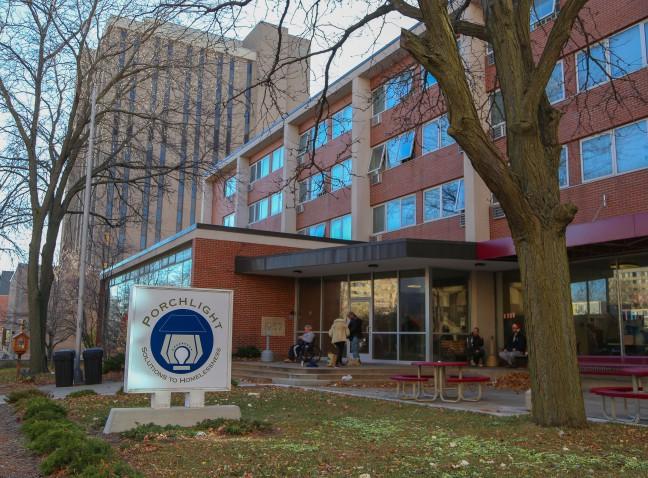It is no secret that Madison’s housing market is struggling to keep up with demand. The effects of inflation, when paired with the skyrocketing need for housing in and around the Madison area, are leading to a worst-case scenario for new renters.
At best, the options for tenants are dismal. At worst, renters are increasingly reporting experiences of harassment and discrimination. Because of the minimal options available on the market, many find themselves stuck between a dangerous and unwelcoming renting option or homelessness. Not only has discrimination risen in general since the beginning of the pandemic and the rise of inflation this year, but Wisconsin in particular is seeing more sexual harassment complaints being filed against landlords than ever before.
Under the Fair Housing Act, any form of discrimination in the marketplace is illegal. But, finding and proving acts of intentional and targeted discrimination can be extremely difficult. Rising demand for apartments gives landlords more opportunities to select tenants based on discriminatory values without raising alarms.
When understood in the context of a lack of options forcing increased desperation across the housing market, renters are significantly more likely to endure discriminatory behavior if they are still provided some form of housing. In some instances, even this is not an option, leaving many faced with the prospect of homelessness.
The process of filing and defending a housing complaint is not always easy for victims to win. First, the statute of limitations for filing a complaint against a landlord is one year after the individual was made aware of discriminatory action being taken against them. Once the complaint is processed, Wisconsin’s Equal Rights Division will then pursue an investigation into the claim to determine if discrimination occurred, which can be a lengthy and at times invasive process.
If either the defendant or the victim wishes to pursue the charge through civil action, they must both attend court to argue their case. Neither side is provided legal representation in these instances, and although victims may be entitled to compensation for attorney or legal fees if they win their case, this is not a guarantee. Hence, the pure time and financial burden of filing a complaint may prohibit victims from coming forward.
Disability and race, which have notoriously been the two most common forms of discrimination in the housing market, continue to limit housing options for many Madison residents. Often, these groups face housing discrimination in the form of a landlord’s refusal to rent or sell property based on disability handicaps or racial makeup. Background checks and tenant screenings are some of the most common ways in which landlords can highlight renters they do not approve for their apartments. In 2021, complaints almost doubled compared to 2019 and 2020 levels.
Even with this rise in reports, it is likely that the numbers are much higher. Illegal housing discrimination of any kind has the potential to be highly under-reported. First, it is difficult to identify distinct acts of purposeful discrimination when there is no paired test confirming a distinct behavior difference between tenants.
It is also difficult to estimate the true number of discriminatory acts happening across the market because of the extreme variety of housing options. Considering the vast array of apartment listing sites or the range from single landlord to apartment management company alone, the system is nearly impossible to govern consistently or efficiently.
Sexual harassment in particular faces the risk of going unreported for a host of reasons. Similar to any other act of housing discrimination, there is a real fear of retaliation. Given the insecurity of the market as it stands, the risk of losing a lease or ruining a housing record could be devastating enough to reconsider reporting a landlord.
Given the culture around sexual assault of any kind, there is also the potential for renters coming forward to receive backlash or to have their personal lives publicly questioned. Victim blaming attitudes toward survivors remain unacceptably prevalent across society, from situations of workplace sexual abuse to inappropriate landlords. Victims can thus feel dissuaded from coming forward if the response is expected to be negative.
Finally, societal normalization of sexual harassment paired with the high stakes of housing insecurity can lead to victims feeling the need to minimize or question the validity of their experience.
There has been an extreme social upheaval in recent years to fight against sexual harassment. The #metoo movement has brought to light thousands of individuals’ stories, and there is more social pressure than ever to increase protections for those who risk experiencing any form of sexual harassment or violence. But, housing is lagging far behind schools, employers and other institutions in this battle.
Madison has to do better by its renters. With the local housing market in a precarious and unstable state of price influxes and supply shortages, there is a real chance for landlords and apartment management companies to take advantage of the system. From individual acts of harassment to company-wide discriminatory practices, there is too much potential for renters to face housing insecurity or hostile home environments.
Whether it is through monitoring landlords with a stricter eye, making the discrimination complaint process easier, or ensuring some form of housing security for renters to fall back on should they lose housing opportunities upon coming forward, there needs to be a way to find and act on cases of discrimination and harassment.
Fiona Hatch ([email protected]) is a sophomore studying political science and international studies.














